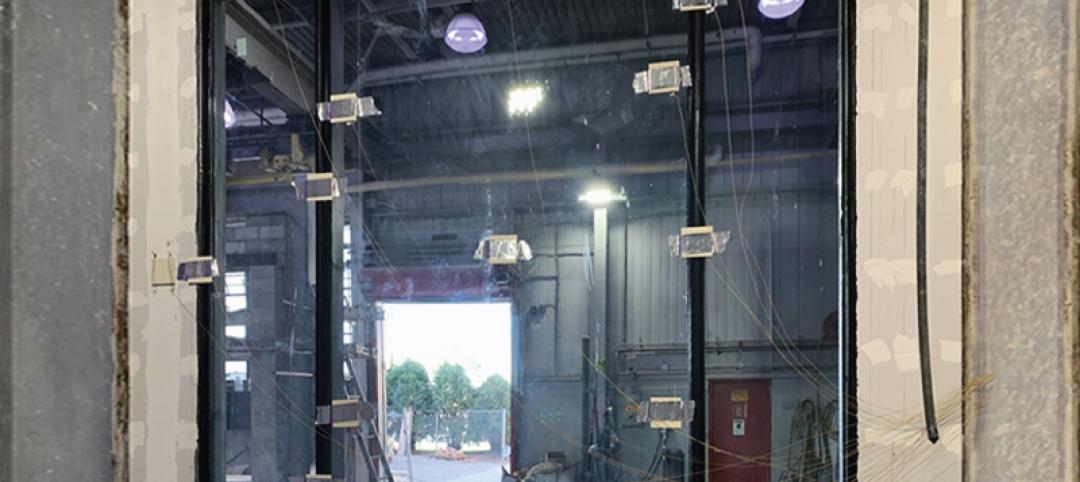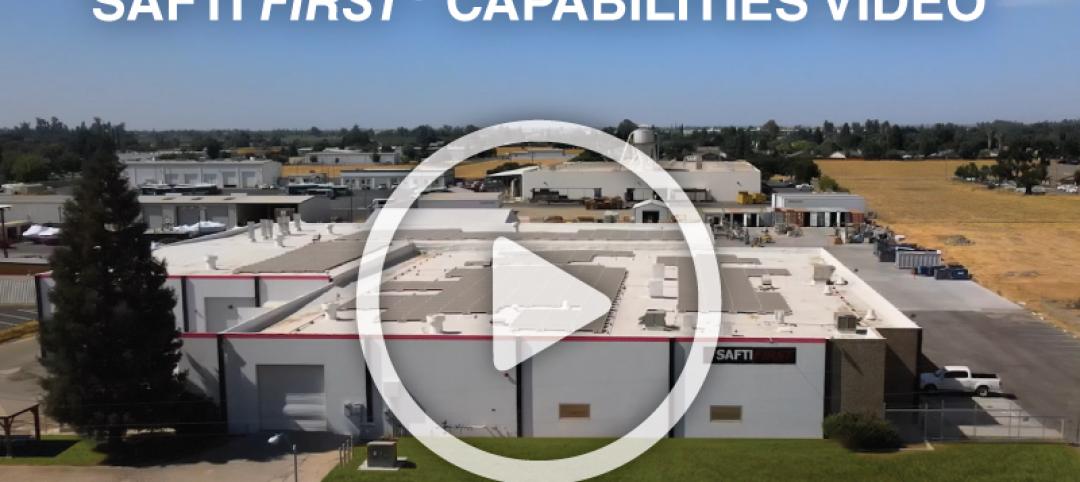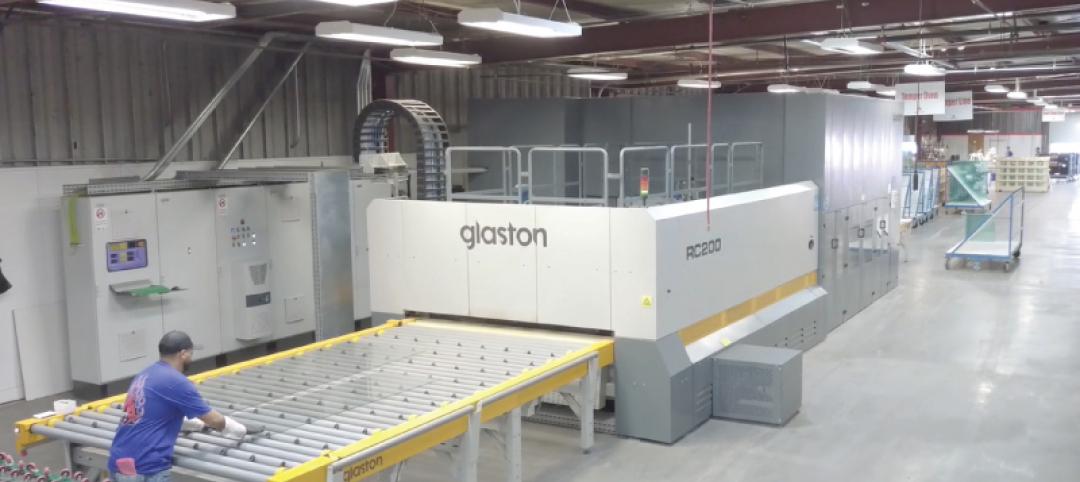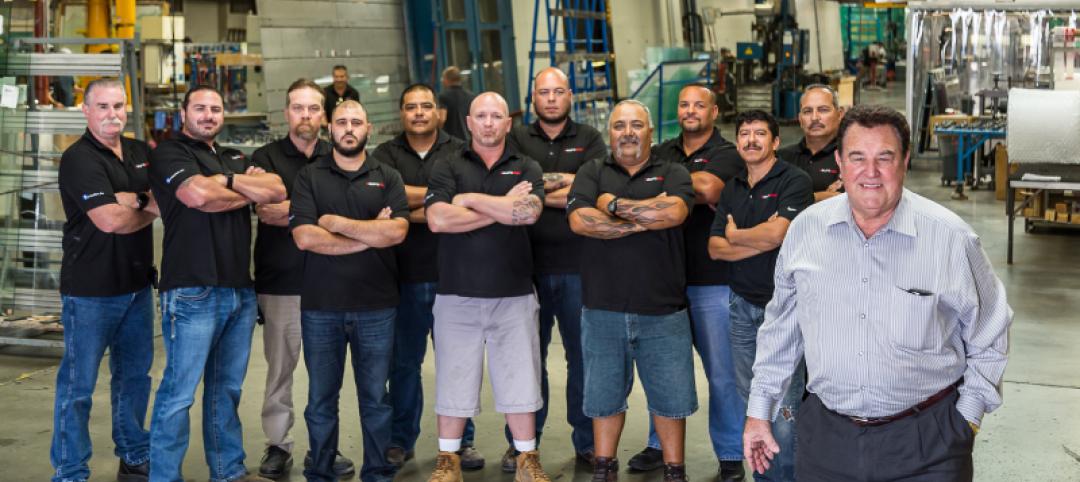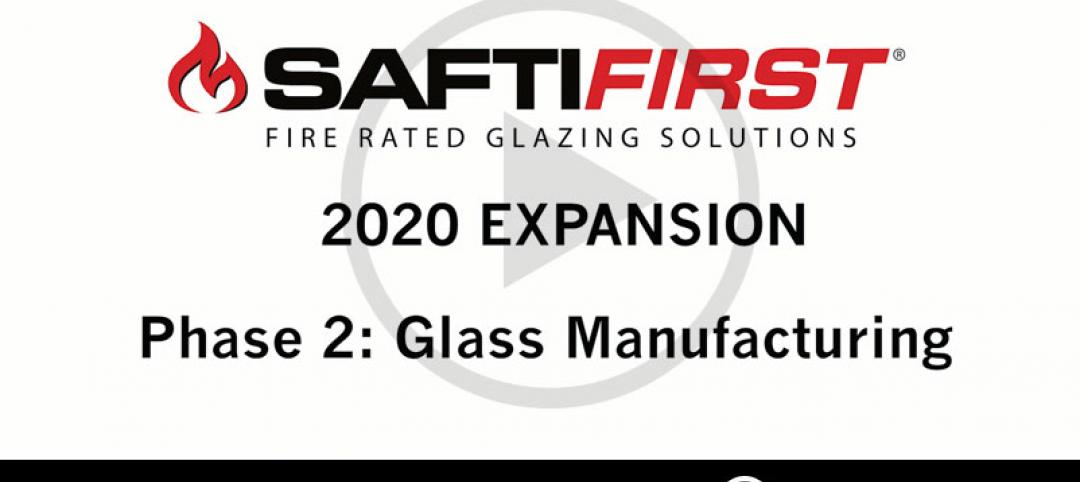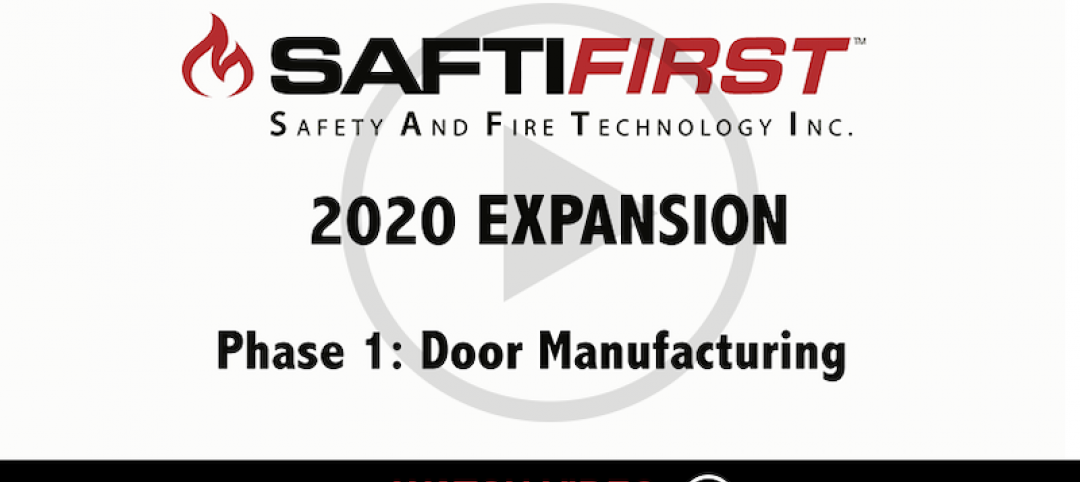Mismatched fire-rated glass and framing happens more often than you think. Failing to confirm that the tested and listed performance capabilities of the framing system match those of the glazing can create a financial nightmare for the entire building team.
In simple terms, the entire assembly must fully meet the requirements of the code.
Seems straightforward enough.
So why are fire protective hollow metal frames used in stairwell enclosures, fire barriers or other applications where fire resistive assemblies (both glass and frames) are required?
Here are a few reasons behind the confusion, and how costly mistakes can be avoided.
1. Standard hollow metal frames cannot be used in many 60- and 90-minute applications.
Like fire-rated glass, fire-rated framing must be listed with a nationally recognized testing laboratory (such as UL and Intertek/Warnock-Hersey) to confirm that it was tested to a particular standard; it does not confirm code compliance. Hollow metal is listed up to 90 minutes, but cannot be used in many 60- and 90-minute applications because it doesn’t meet ASTM E-119, which is usually required in applications over 45 minutes because of radiant heat concerns.
2. Many are confused about what constitutes an “assembly.”
For walls and window openings, it’s clear that the complete assembly means both the glass and frames. But when it comes to door assemblies, it can be less apparent. NFPA 80 defines door assemblies as a combination of the door, frames, hardware, sidelites and transoms. The IBC also makes it clear that sidelites, transoms and frames are part of the door assembly. This means that both the glass and the frames must meet the required testing for the application. Using fire protective framing, like hollow metal, with fire resistive glass voids the fire resistive rating of the assembly.
3. Sidelite/transom and interior window applications using hollow metal frames over 45 minutes are limited.
The hollow metal frames cannot be used in 60 and 90 minute door assemblies that include sidelites and transoms, such as the ones found in 1-2 hour exit enclosures, stairwells and fire barrier walls, where fire resistive glazing ASTM E119 is permitted when tested as an assembly meeting ASTM E119. In 1 hour exit corridors, 45 minute openings that exceed 25 percent of the wall area must be fire resistive and equal to the rating of the wall. The framing must also be fire resistive, once again limiting the use of hollow metal frames.
4. Misconceptions when sprinklers are present.
What effect, if any, do sprinklers have on code requirements for fire-rated assemblies? In particular, what do the codes say about glass and framing used in 60 and 90 minute door assemblies in exit passageways and exit enclosures? Although temperature rise doors may not be required in these applications where the building is fully sprinklered, fire protective glazing in 60 and 90 minute door vision panels are limited to 100 sq. in. due to radiant heat concerns.
Today’s fire rated framing systems have outperformed standard hollow metal frames in many ways – higher fire ratings that meet ASTM E-119, increased design options and finishes, even make-ups that protect against hurricanes, bullets and blast. Knowledge of building codes, allowed applications and product performance opens up a world of possibilities for designers.
Read the complete article on the SAFTI FIRST website.
Editor's note: This is sponsored content. The text was provided by the sponsored company.
More from Author
Bill O'Keeffe | Oct 19, 2020
Going virtual
Manufacturers use virtual platforms to help architects meet CEU requirements.
Bill O'Keeffe | Jul 16, 2020
Obsolete?
"Revolutional, affordable, USA made Fire Rated Glazing for all fire protective areas makes ceramic glazing obsolete". Check out SuperClear 45-HS and SuperClear 45-HS-LI to understand why!
Bill O'Keeffe | Feb 10, 2020
USA-made fire rated glazing goes big in 2020
We are pleased to announce and share that the second phase of this $8 million expansion, upgrading our fire rated glass manufacturing facilities in Merced, California, is underway.
Bill O'Keeffe | Nov 20, 2019
Demand for advanced, USA-made fire rated glazing “RAISES THE ROOF”
With architects specifying full-vision, code-compliant, 60 and 90 minute, temperature rise doors for exit stairwells and other code required applications, we found this as an opportunity to expand our product offerings.

